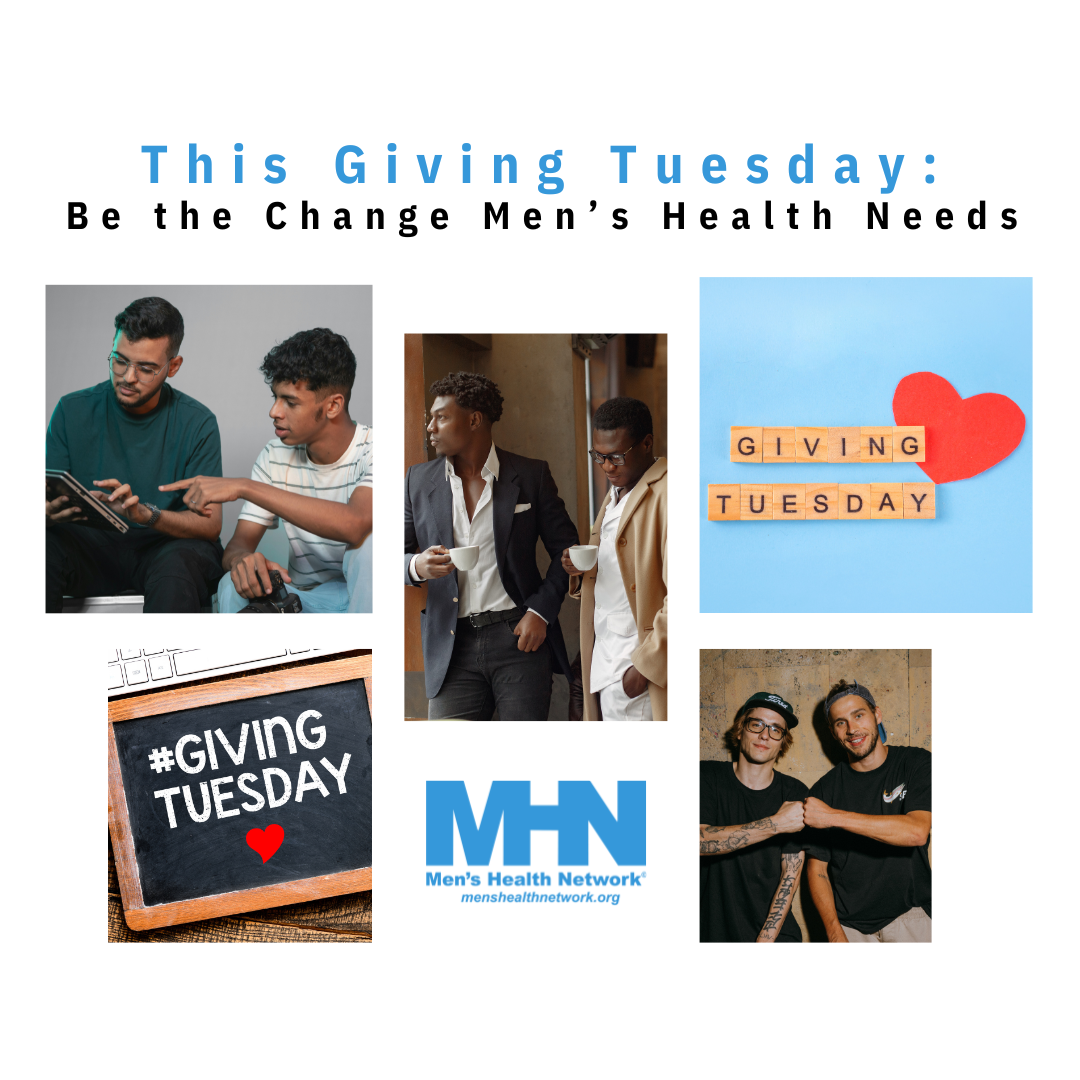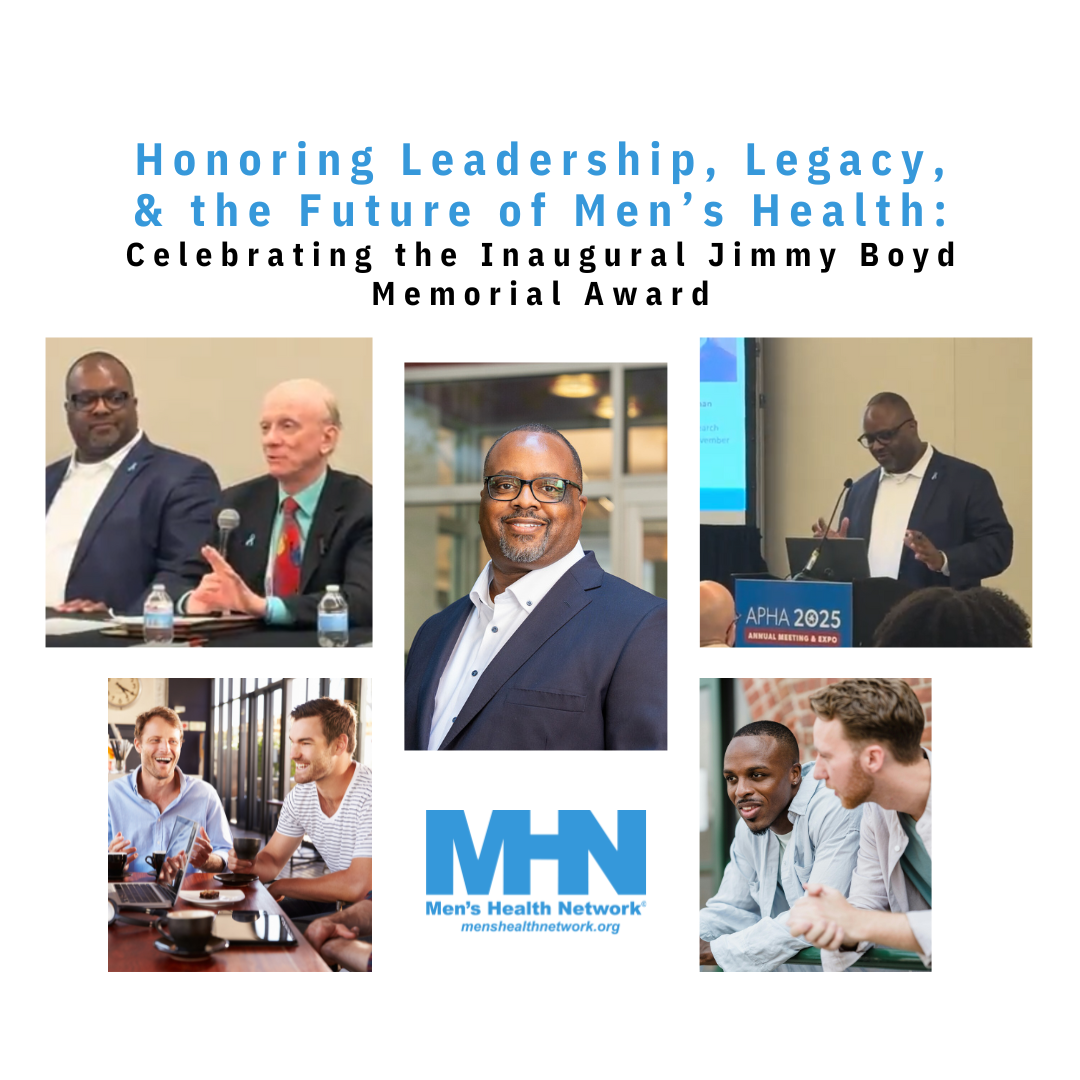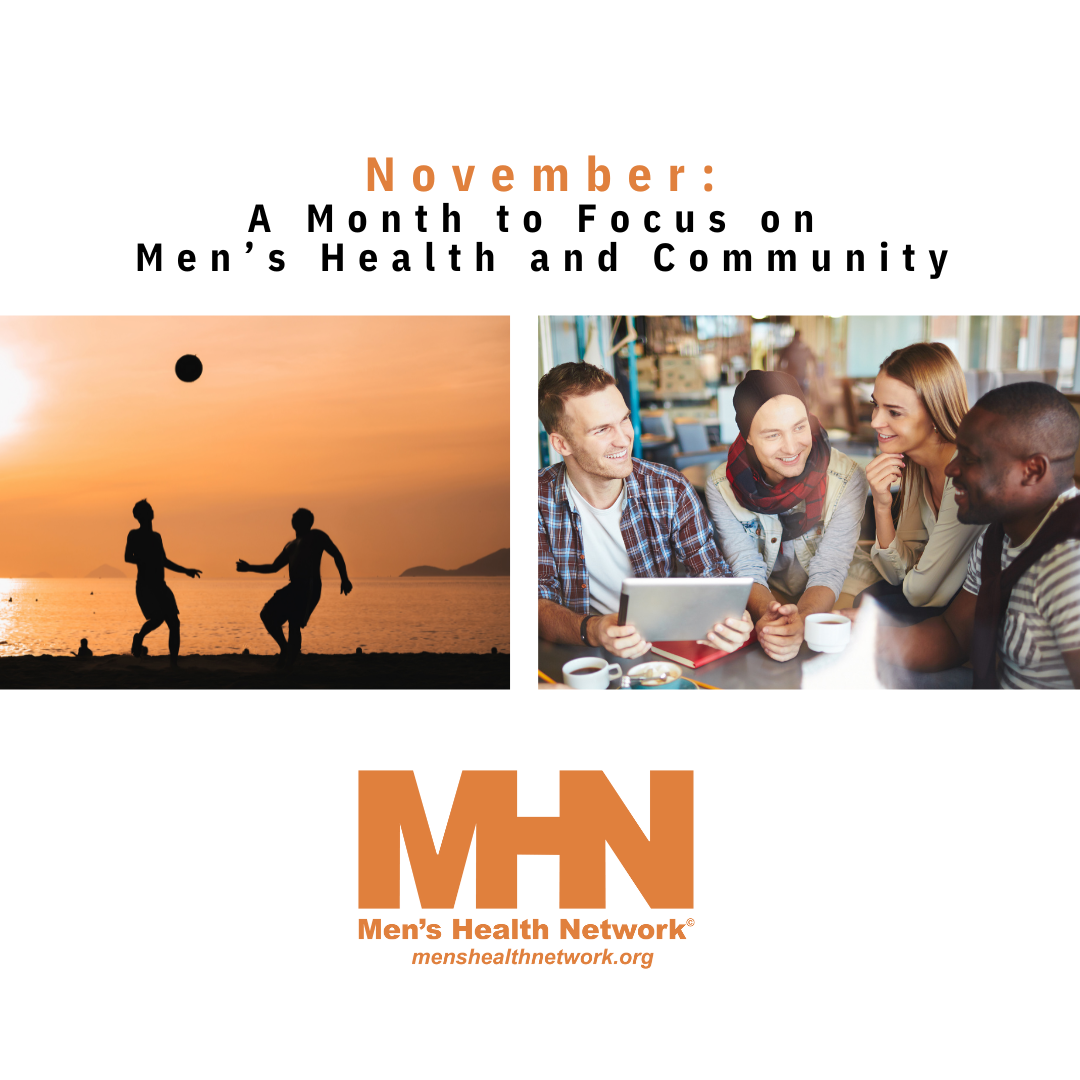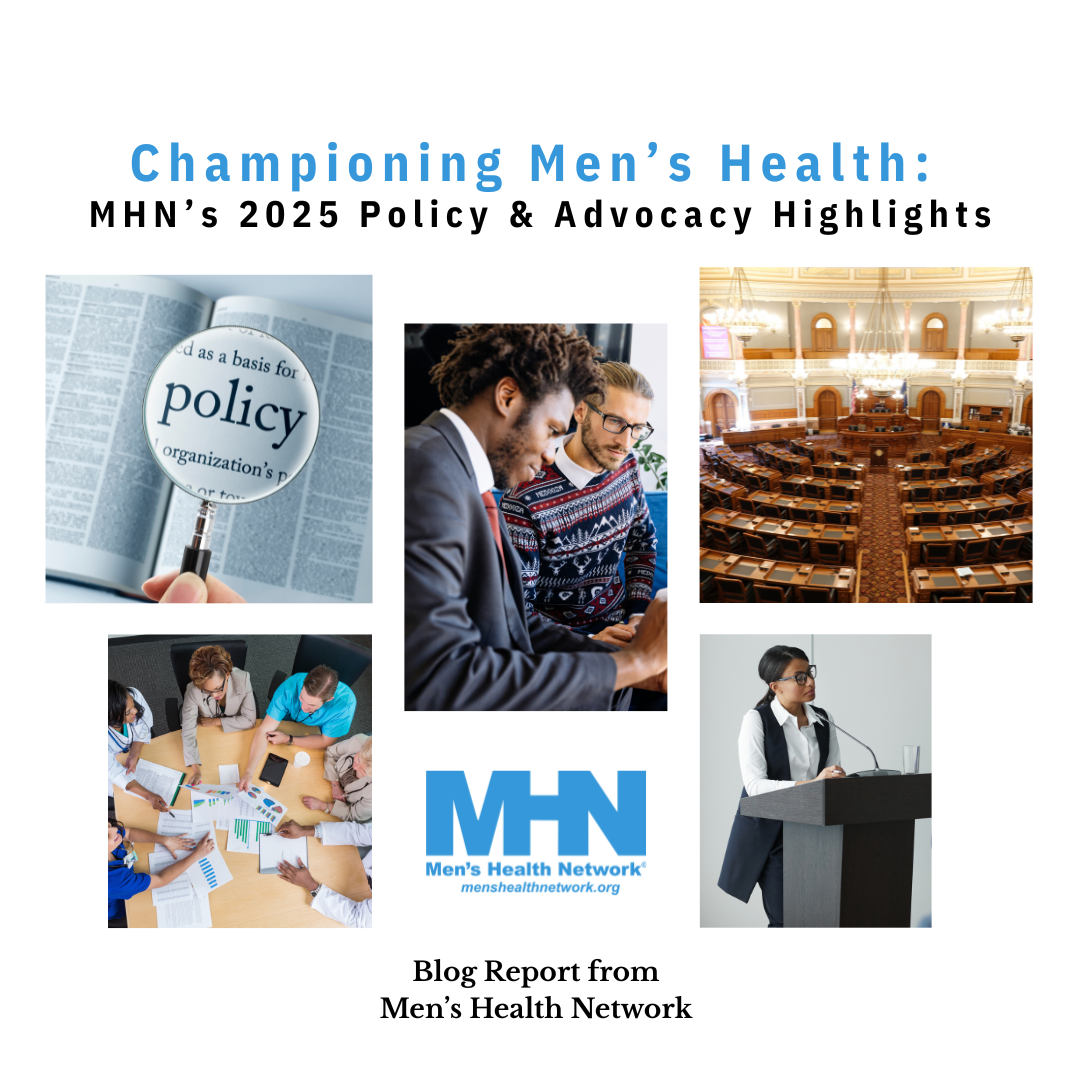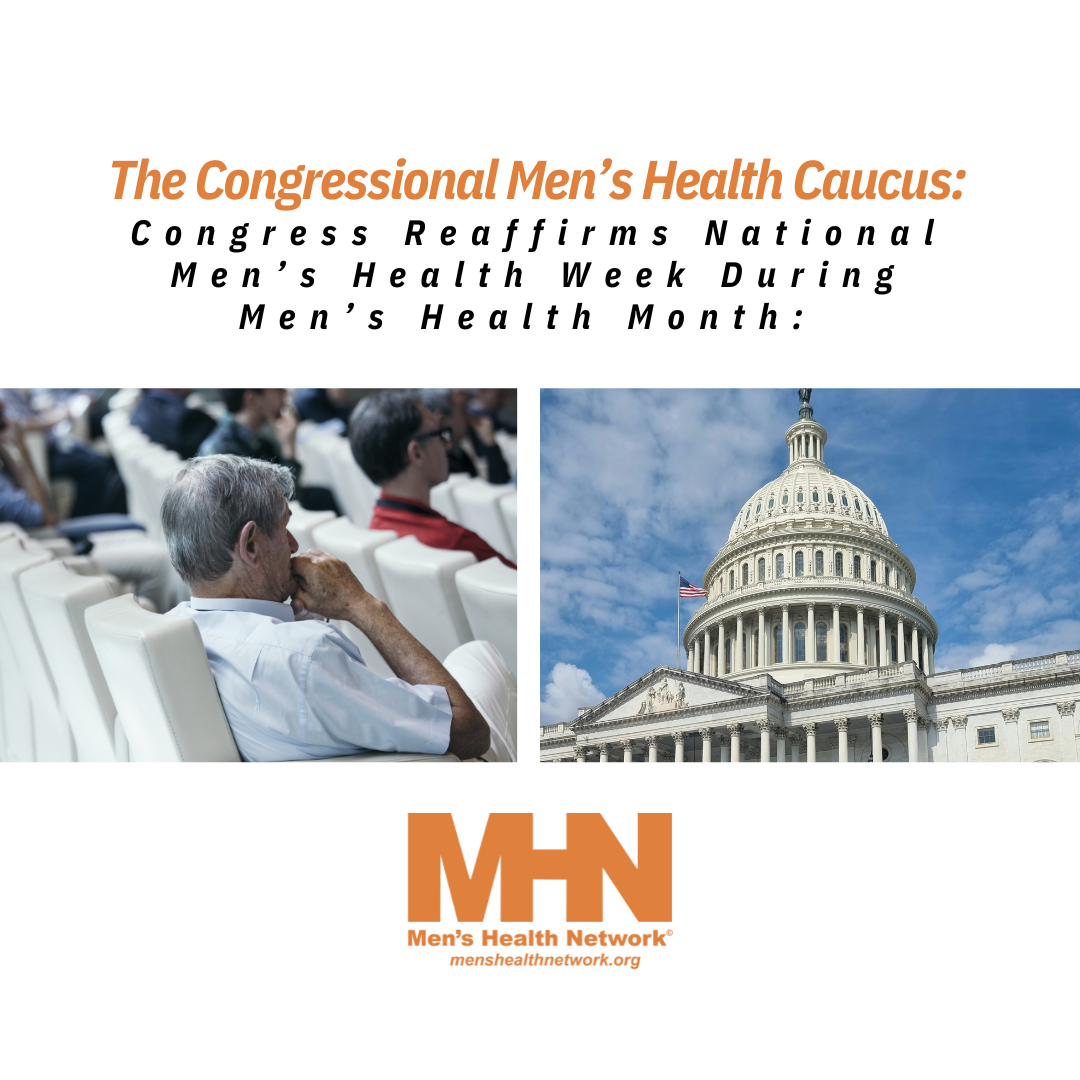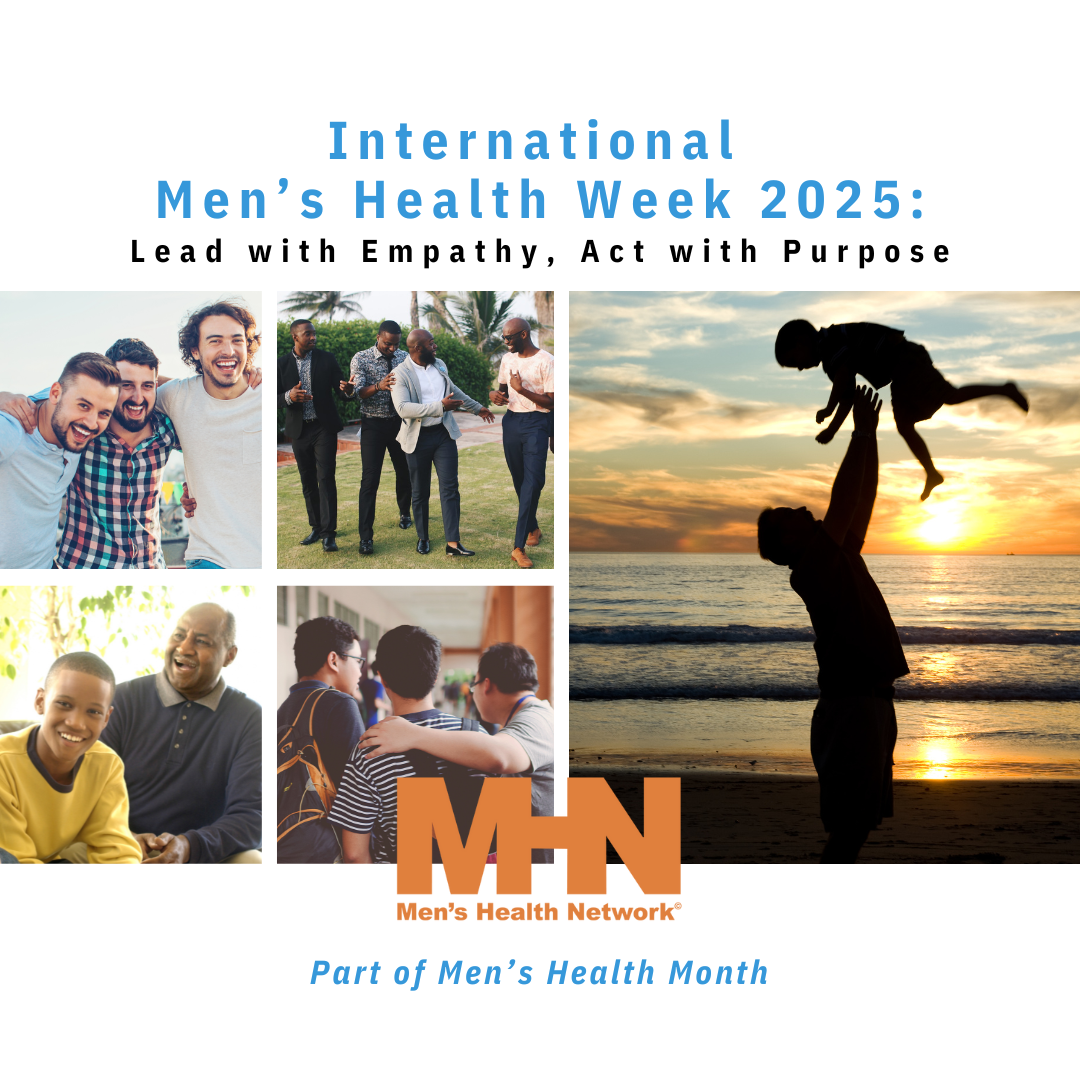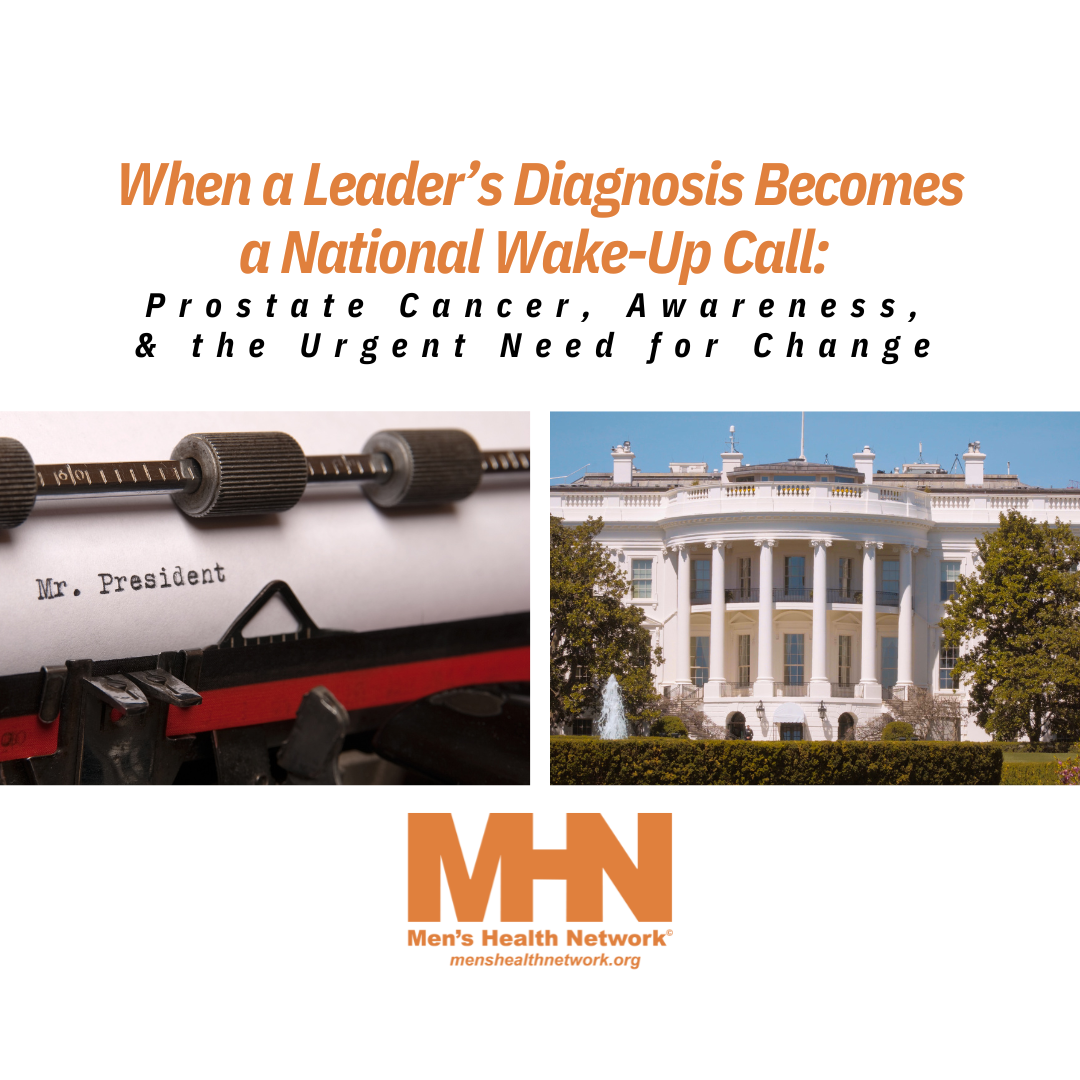Illinois is leading the nation in men’s health by becoming one of the only states with a dedicated Men’s Health Section within its Department of Public Health. The newly released Men’s Health Assessment 2025, authored by Andrew Lerch, DPT, PT, provides a comprehensive, data-driven look at the health challenges facing men across the state. This landmark report highlights disparities, identifies priority areas for action, and offers a blueprint for how states can integrate men’s health into public health strategy, policy, and practice.Continue reading
Category: Editorials
This Giving Tuesday: Be the Change Men’s Health Needs
Giving Tuesday is next week, and Men’s Health Network (MHN) is calling on supporters to help close the Lifespan Gender Gap and build empathy for men’s health. This year, MHN expanded outreach across communities, churches, and schools, relaunched the Congressional Men’s Health Caucus, and supported bipartisan resolutions like H.R. 1300 (PSA Screening for HIM Act) and H.R. 675 (Prostate Cancer Awareness Month), advancing prevention and early detection nationwide. From toolkits that reached thousands to Ambassadors leading local events, MHN continues reaching men where they live, work, play, and pray. Your support powers awareness, education, and advocacy that saves lives.Continue reading
Reclaiming Masculinity: The Courage to Be Whole
In Reclaiming Masculinity: The Courage to Be Whole, Men’s Health Network spotlights the work of Dr. David P. Jachim, a psychoanalyst and MHN Advisory Board member whose book Men at the Brink: Masculinity in the 21st Century explores how modern narratives have distorted society’s view of manhood. Dr. Jachim examines the emotional and cultural costs of labeling masculinity as “toxic,” while calling for men to reclaim the virtues of courage, compassion, and integrity. Through empathy, self-care, and brotherhood, men can resist alienation and redefine strength in ways that heal, not harm. This reflection offers a powerful reminder: masculinity is not the problem—misunderstanding it is.Continue reading
Honoring Leadership, Legacy, and the Future of Men’s Health: Celebrating the Inaugural Jimmy Boyd Memorial Award
Men’s Health Network commemorates a milestone moment in the men’s health movement with the presentation of the Inaugural Jimmy Boyd Memorial Award for Leadership in Men’s and Boys’ Health, established by the APHA Men’s Health Caucus. The award honors the legacy of Jimmy Boyd, former Executive Director of MHN’s Washington, D.C. office, whose decades of advocacy helped launch Men’s Health Week and later Men’s Health Month. Jimmy’s bold leadership, mentorship, and unwavering commitment to improving the lives of men and boys continue to influence the field today. The first recipient of the award, Derek M. Griffith, PhD, was recognized for his extensive contributions to men’s health research, policy, and global leadership. In his acceptance statement, Derek reflected on Jimmy’s generosity, wisdom, and guidance—qualities that shaped many of today’s men’s health advocates. Global Action on Men’s Health (GAMH) also celebrated Derek’s recognition, noting how his leadership honors Jimmy’s legacy while advancing the movement worldwide. The blog highlights MHN’s official tribute to Jimmy Boyd, emphasizing his profound impact on policy, advocacy, mentorship, and the spirit of the men’s health movement. It also reflects on the award’s significance as a symbol of continuity—from Jimmy’s foundational work to Derek’s ongoing leadership. Together, Jimmy Boyd’s legacy and Derek Griffith’s achievements underscore the compassion, dedication, and human connection that continue to propel the men’s health movement forward.Continue reading
November: A Month to Focus on Men’s Health and Community
November is a pivotal month for raising awareness about men’s health and community well-being. From Alzheimer’s and diabetes to epilepsy, tobacco use, and sexual health, each observance offers an opportunity to take action and encourage preventive care. Men’s Health Network emphasizes that health doesn’t take a season off—simple habits, early conversations, and empathy-driven outreach can make lasting change. This month’s blog highlights national campaigns like the Great American Smokeout, National Diabetes Month, and Impotence Education Month, alongside Illinois’ groundbreaking creation of a Division of Men’s Health. It also spotlights the growing Men’s Health Ambassadorship Program—ordinary people doing extraordinary work to close the Lifespan Gender Gap and build healthier communities. Through awareness, advocacy, and everyday choices, November reminds us that improving men’s health is a shared mission that benefits families, workplaces, and society as a whole.Continue reading
Championing Men’s Health: MHN’s 2025 Policy and Advocacy Highlights
In 2025, Men’s Health Network advanced men’s health by supporting prostate and kidney cancer research, pushing for stronger HPV vaccination guidance for boys, expanding telehealth access, and endorsing global prevention initiatives. These efforts highlight MHN’s leadership in shaping policies that improve the health and future of men and boys.Continue reading
The Congressional Men’s Health Caucus: Congress Reaffirms National Men’s Health Week During Men’s Health Month
In recognition of Men’s Health Month 2025, Congressman Troy A. Carter Sr. introduced a bipartisan resolution honoring National Men’s Health Week (June 9–15). Backed by the Congressional Men’s Health Caucus, the resolution emphasizes the importance of preventive care for men, raising awareness about critical issues like prostate cancer, testicular cancer, mental health, and chronic disease. With men continuing to die younger and seek care less often than women, this action urges greater focus on early detection, routine health screenings, and breaking the stigma around men’s health care. Men’s Health Network encourages individuals and communities to take action and support men’s health awareness throughout the month of June.Continue reading
International Men’s Health Week 2025: Lead with Empathy, Act with Purpose
As we celebrate International Men’s Health Week, it’s important to recognize where it all began. Men’s Health Network not only launched Men’s Health Week and Men’s Health Month—they laid the groundwork for a global movement. Their advocacy helped pass the original Congressional resolution in 1994, signed into law by President Bill Clinton, establishing Men’s Health Week as a national observance. From there, they created the infrastructure, messaging, and coalition-building that gave rise to what is now an international health campaign.Continue reading
When a Leader’s Diagnosis Becomes a National Wake-Up Call: Prostate Cancer, Awareness, and the Urgent Need for Change
Former President Joe Biden’s stage 4 prostate cancer diagnosis underscores a national failure in men’s health and preventive care. Men’s Health Network is calling for urgent reform to PSA screening guidelines, improved prostate cancer awareness, and expanded support for men’s healthcare—especially for those over age 70. Prostate cancer is highly treatable when detected early, making timely prostate screenings critical. This moment is a wake-up call to prioritize men’s health policy, close the Lifespan Gender Gap, and increase health education for men.Continue reading
Global Data Confirms It: Men’s Health Deserves Focus, Funding, and a Future
In response to the recent PLOS Medicine, "Sex-disaggregated data along the gendered health pathways" Article: It’s a vital contribution to the men’s health conversation and affirms something we’ve said all along: Men's health outcomes will improve when we prioritize men’s health intentionally. At MHN, we see this Article as a roadmap, but it’s up to all of us—health professionals, policymakers, community leaders, and advocates—to act on it. Follow along for all of our commentary on this article... Continue reading


